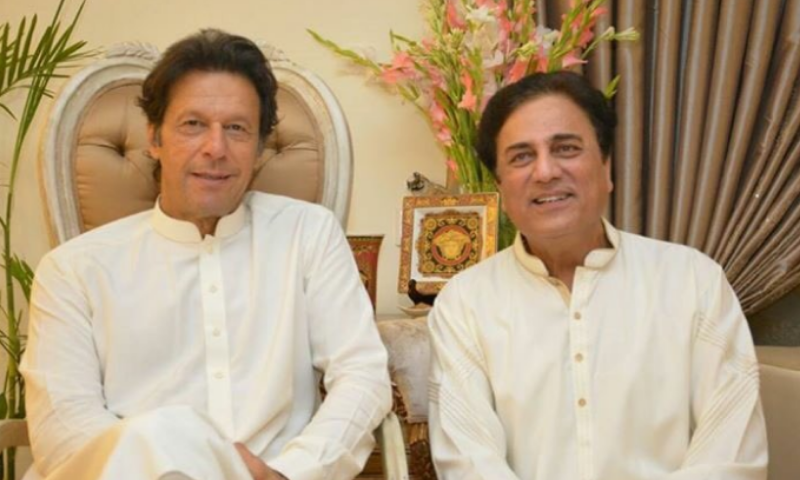
The recent appointment of Naeem Bukhari, a television personality who served as Imran Khan’s personal lawyer, as chairman of Pakistan Television Corporation represents the latest act of nepotism. It has brought to the fore the role of a public broadcaster. Imran Khan has, once again, taken a U-Turn on his promise of making PTV independent, “like BBC.”
Bukhari, whose off colour jokes on TV and his sycophancy for Imran Khan resembles Rudy Giuliani’s conspiracy theory laden work for Donald Trump, has no experience of managing a large media corporation. He has also said that under him, PTV will only project the ruling party’s agenda,
In the words of a Dawn editorial, “A public broadcaster enriches democracy by providing people responsible and ethical news that reinforces social and cultural values while ensuring that viewers are not deprived of authentic information they require as citizens of a democratic state.”
This unfortunately has rarely happened in Pakistan and now we have Bukhari’s assertion that he will not allow PTV to provide any coverage to the opposition.
According to Dawn “Mr Bukhari is wrong. But unfortunately, he is not the only one who has misplaced notions about the role of a state broadcaster. The PTI is the latest in a long line of ruling parties that have harped on reforming PTV when in opposition and then rubbishing such pious intentions once in power. If PTV today is a white elephant struggling for relevance in a swiftly transforming media environment, it is due to the myopic vision and faulty understanding of those who have the responsibility of overseeing the official media thrust upon them.
But “in the present case it is indeed the prime minister himself who shares the bulk of the burden,” Dawn maintains. “His party’s manifesto boasted about reforming PTV when it came to power, and Mr Khan is on record as having said the same thing when in opposition. From those noble intentions to Mr Bukhari’s cavalier utterances — the PTI has indeed come a long way. It is also the wrong way.”
Dawn points out that, “The modern world has no place for archaic organisations like a state broadcaster generating no other content than stale and crude government propaganda. Instead, what holds value is what is called a ‘public broadcaster’. Prime examples of taxpayer-funded public broadcasters are Britain’s BBC, Canada’s CBC and America’s NPR. A public broadcaster caters primarily to the needs of the citizens, not of the government.”
“Unshackled from the confines of commercially driven content, it carries the mandate to produce high-quality, credible and trustworthy content that adds value to the lives of citizens,” Dawn points out correctly.” Very few among our political parties seem to have a nuanced understanding of a public broadcaster’s role. This is why Pakistanis are forced to carry the burden of PTV and endure the rigours of official propaganda spewed forth with relish by unqualified people like Mr Bukhari.”
![]()





